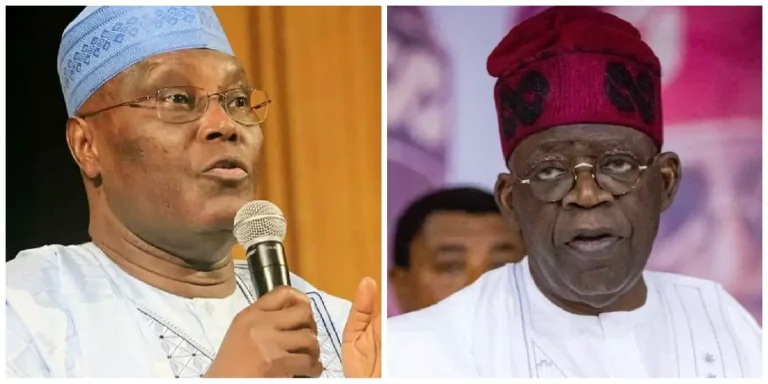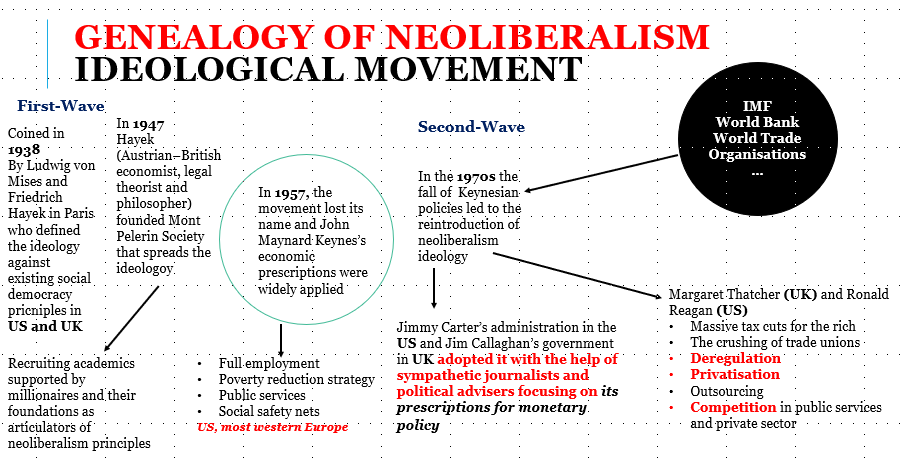
Nigerians have less than 20 days to choose one out of over 10 presidential candidates. The candidates, their political parties and their supporters have been marketing and promoting different agendas since September 28, 2022. The candidates have been at various places, telling citizens that they all have what it takes to lead Nigeria and provide much-needed public goods between 2023 and 2027. They have hailed people and are still hailing people with their different promises that aim at elevating the socioeconomic status of individuals and the political status of the country regionally and internationally. Most of the time, they made citizens the subjects of their promises and ideological orientations, with few understanding the implications of being the subjects.
Our analyst examines the neoliberalism agenda of two of the three leading candidates in this piece by paying attention to their previous utterances on the agenda. Senator Bola Ahmed Tinubu of the All Progressives Congress and Alhaji Atiku Abubakar of the People’s Democratic Party are not minors when it comes to discussing national politics. They have been political leaders at various levels and members of various committees. They are business owners who understand how the private sector works in addition to understanding existing nuances in the public sector. Therefore, they cannot be seen as political contestants who do not know the implications of promoting specific political and social ideologies. For instance, as a political and economic ideology, neoliberalism emphasises the importance of free markets, individual freedom, and minimal government intervention. Before the 2023 presidential election campaign, the two candidates have hailed Nigerians with the ideology at various stages of their political careers and contributions to national discourse. Our checks reveal, however, that one of the candidates appears to have disassociated himself from the ideology in recent campaign activities.

“If you see the amount of work the government has to do in this country, like building and rebuilding our ports, constructing our railway lines, building our highways – let me borrow Dokpesi’s word – it is a ‘humongous’ amount of money that you require. You know that the government doesn’t have it,” he said. “I would rather concession most of this to the private sector and give them tax breaks. They invest, recover their money and we will have development, progress, jobs, and prosperity,” the presidential candidate of the PDP said during one of his recent political outings. He further said his privatization plan is not to render people jobless but to ensure effective governance.
Register for Tekedia Mini-MBA edition 19 (Feb 9 – May 2, 2026): big discounts for early bird.
Tekedia AI in Business Masterclass opens registrations.
Join Tekedia Capital Syndicate and co-invest in great global startups.
Register for Tekedia AI Lab: From Technical Design to Deployment (next edition begins Jan 24 2026).
According to him, privatisation would help get the comatose but money-guzzling refiners into productive hands and ultimately ensure that Nigeria becomes a chemical refining hub. Atiku argued that the private sector suffers when it is not productive. Therefore, the one way to kickstart its productivity is by privatizing assets that aren’t productive.
In 2021, in a statement titled ‘Privatisation of Refineries and Other Assets: Better Late Than Never,’ and reported by a national online medium, Alhaji Atiku called for transparency in the process of privatising the assets. Alhaji Atiku noted that the privatisation of public assets which he once championed and was scorned for by the All Progressives Congress-led administration is now being embraced by the same administration. According to our check, Alhaji Atiku advised the Federal Government to embrace privatisation in 2015. Two years later, Professor Yemi Osinbajo, while acting as President, reported that no fewer than 142 public enterprises had been privatised since the inception of the National Council on Privatisation (NCP).
Alhaji Atiku appears to be far from alone in hailing Nigerians with the ideology. Our checks reveal that some of his political supporters and members of the parties from which he has run are very interested in his idea of ensuring market deregulation and the sale of dormant public assets. The spokesperson of Atiku/Okowa Campaign Organization recently highlighted how the privatisation plan for the refineries would benefit Nigeria.
While some Nigerians believe that privatising public companies has benefits, they believe that Alhaji Atiku Abubakar will likely repeat his approach as Vice President and Chairman of the Privatisation Committee. As a result, many non-state actors, including labour unions, students, and public affairs analysts, are opposed to reintroducing the agenda if he is elected president. Senator Bola Ahmed Tinubu recently hinted that Alhaji Atiku would sell national assets to the highest bidder and then flee with the proceeds.
However, numerous checks reveal that Senator Bola Ahmed Tinubu cannot be exonerated from politicians who hail Nigerians with the ideology. In 2019, he urged the Federal Government to revisit power sector privatisation. When he was governor of Lagos State between 1999 and 2007, he tried to sell the State Water Corporation, but it was stopped after a civil society protest.


